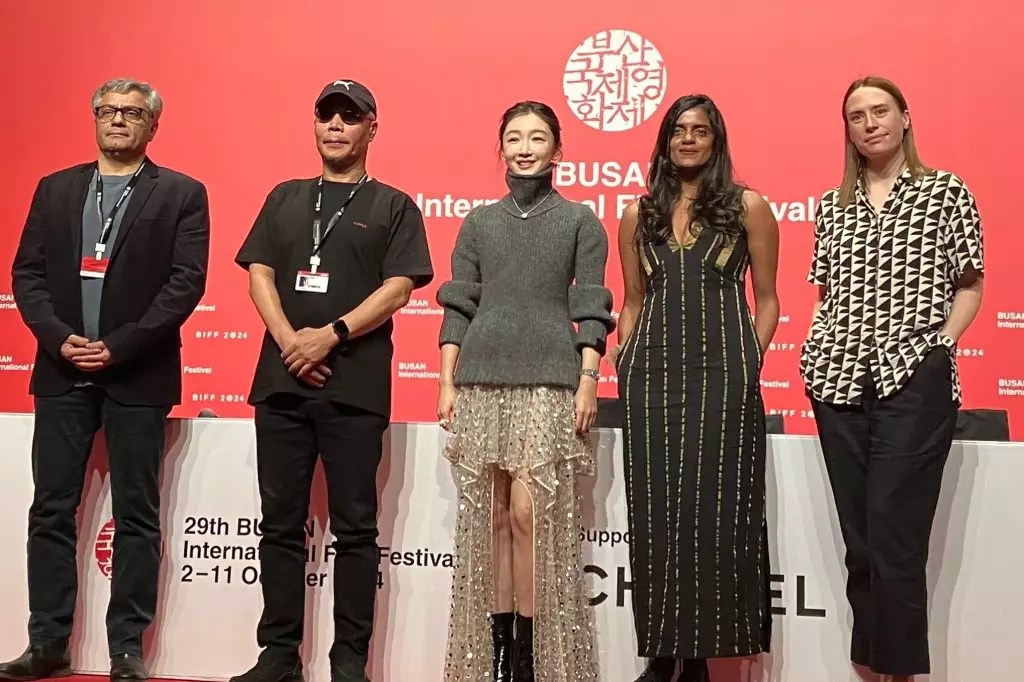The landscape of international cinema has seen its fair share of challenges, particularly from authoritarian regimes that impose strict censorship on artistic expression. One filmmaker who has become emblematic of this struggle is Mohammad Rasoulof. As the president of the New Currents jury at this year’s Busan International Film Festival, Rasoulof’s experiences serve as a poignant reminder of the resilience and hope within the film community, especially for those grappling with oppressive political climates.
Rasoulof currently resides in exile in Germany after fleeing Iran just before the Cannes Film Festival. His latest work, “The Seed of the Sacred Fig,” recently garnered significant recognition, screening in competition at Cannes and winning a Special Award. However, the film’s success comes with a heavy price: Rasoulof was sentenced to eight years in prison by Iranian authorities for creating the film without official permission. Underlining the irony, Germany has selected this very film as its submission for the Best International Feature category at the Oscars, something that his home country would never recognize.
Rasoulof remarked at a press conference in Busan, “The investors of the film were German, and the producer was from Germany, so although the film is Iranian, the German delegation accepted the film.” His assertion emphasizes that art is a global dialogue, transcending borders and political barriers. The selection of his film not only stands as a testament to its artistic merit but also marks a significant moment of solidarity for filmmakers in repressive contexts.
A Beacon of Hope for Iranian Filmmakers
The significance of Rasoulof’s Oscar nomination extends beyond personal vindication. He expressed hope that this recognition would inspire other Iranian filmmakers facing stringent censorship. “This should give great hope for other filmmakers in Iran making films under censorship,” he stated. His words resonate with a larger sentiment in the filmmaking community, where the potential for recognition from international bodies serves as a motivating force for creators operating under oppressive regimes.
Rasoulof’s narrative sheds light on the broader struggles faced by filmmakers worldwide. “There are also other films submitted to the Oscars that are chosen by the regimes of other countries. So, we hope the films [that they wouldn’t select] also have a chance to go to the Oscars,” he added. This plea indicates a desire for a more inclusive representation of global cinema—one that does not adhere to the dictates of political entities.
Rasoulof leads a jury that encompasses a rich tapestry of global film perspectives, including Korean director Lee Myung Se and Chinese actress Zhou Dongyu, among others. Each jury member brings unique insights influenced by their regional cinematic landscapes and the struggles witnessed within their respective industries.
Lee’s comments on the crisis in Korean cinema resonate with many global filmmakers navigating a post-pandemic landscape. He noted that internal issues—rather than external competition—are at the heart of the challenges faced by filmmakers in Korea and beyond. He seeks to identify works that genuinely reflect the artistry of filmmaking.
Meanwhile, Zhou, reflecting on the strained political ties between China and South Korea, expressed optimism about the future. Her belief in a cultural exchange year in 2025 embodies the hope for reconciling differences through art and storytelling. Such sentiments reinforce the notion that cinema can serve as a bridge, fostering understanding amidst political discord.
Indian actress Kani Kusruti’s reflections on the thriving diversity within Indian cinema further highlight the dynamism of contemporary filmmaking. Despite the controversies surrounding awards and nomination processes, she praised the vibrant landscape of Indian films spanning commercial to independent genres. Her observations underscore a renaissance in Indian cinema that is characterized by innovative storytelling and heightened artistic expression.
Festival director Vanja Kaludjercic affirmed this sentiment, noting the richness of films emerging from India, and how they encapsulate a variety of languages and cultural narratives. This diversity is not merely a statistic; it represents an evolving cinematic language that continues to surprise and engage global audiences.
Looking Forward
The significance of the New Currents competition at the Busan International Film Festival cannot be understated. This initiative to showcase the first or second features by emerging Asian directors not only serves to spotlight new talent, but it also reinforces the belief that fresh perspectives are essential for the vitality of global cinema. With cash prizes awarded to promising filmmakers, the competition aims to nurture future voices that challenge norms and expand the cinematic landscape.
The experience of filmmakers like Mohammad Rasoulof serves as both an inspiration and a clarion call for the integrity of artistic expression across all borders. The hope cultivated through festivals like Busan, coupled with international recognition, serves to illuminate pathways for future generations of filmmakers to create without fear of censorship. Their stories are vital in weaving the rich tapestry of global cinema that continues to reflect, challenge, and inspire.


Leave a Reply